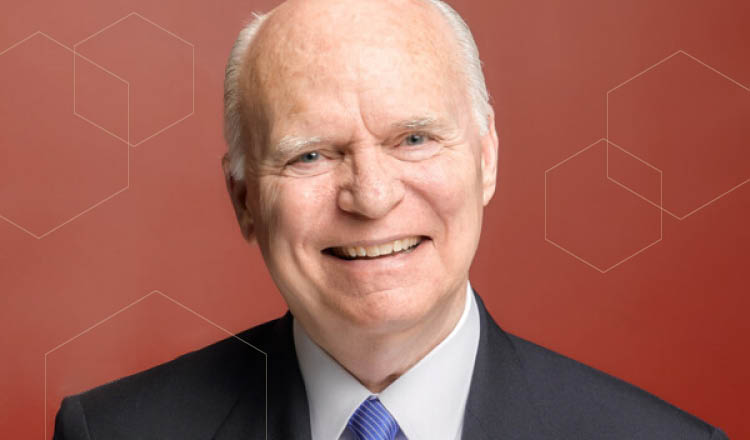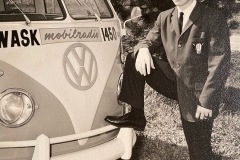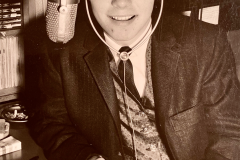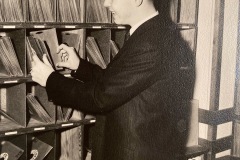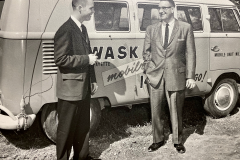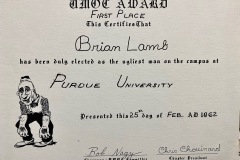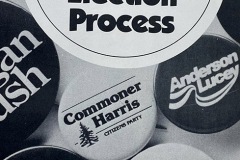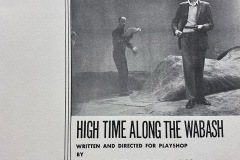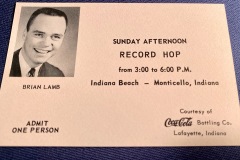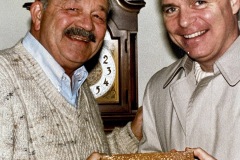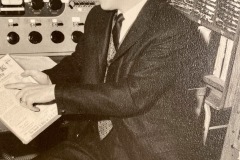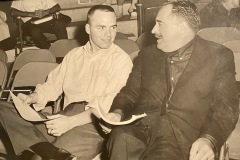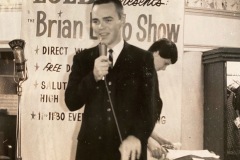Lessons from the Beltway for today’s students
This is the first installment in a multipart series with Brian Lamb (LA’63, HDR LA’86), the founder of C-SPAN. Lamb retired from his day-to-day responsibilities with C-SPAN in 2019.
In 2019, on his retirement from C-SPAN, Brian Lamb struck a cynical tone in an interview with the Wall Street Journal.
“Lying is the word that I would use to describe this town,” Lamb said. “I don’t know if it will ever stop. It’s gotten worse rather than getting better, and both sides do it. You’ve got to listen very carefully to what they’re saying.”
And yet, Lamb remains hopeful about the future.
“If people who are students today can’t hope for change, we’re in serious trouble,” quips Lamb when we spoke over the phone.
“They’re smarter than I was when I was in school — of course, that’s not saying much,” laughs Lamb. “They’re aware of the world. With today’s communications, they’re in touch. Students are getting a full dose of reality today, and part of that is because they can see it for themselves.
“I think they’ve got their eyes wide open as to what’s going on in the political system — and they’re going to try to change it.”
When Lamb arrived in Washington, DC, it didn’t take long for him to realize that his perception of the way things worked in the nation’s capital was somewhat naive.
“I wasn’t aware of the lying that goes on with government officials,” reflects Lamb. “It didn’t take long to get over that. When I ended up at the Pentagon, it was right in front of me every day with the Vietnam War.”
As quoted in The Wall Street Journal, Lamb says that “lying” is the word he would use to describe the entire town. “It’s not one party or the other,” he clarifies.
Although retired, Lamb still considers himself a student. And part of being a lifelong student, he says, “is to figure out what’s happened in the past and see if there’s any great difference today.”
And while Lamb has hope for the generation coming up today and their desire to change things for the better, after 54 years in Washington, he doesn’t hide his disappointment.
“I thought that more transparency would make officials in government more responsible, and it just doesn’t work that way.”
From record filing to filing the public record
Lamb embodies Midwestern modesty. While he has been in Washington for more than half a century, his Hoosier roots are obvious.
When asked if he could talk about his time in Washington, DC. and his work with the Johnson and Nixon administrations, he asks if he can first talk about Purdue and growing up in Lafayette.
Lamb’s first break came while he was working at WASK in Lafayette — at the time, he filed records. “In those days, you had a huge record file, and that’s where you got the music,” says Lamb. His boss, Henry Rosenthal, asked if the then 17-year-old would like to make a station break announcement.
“All you would say is ‘This is radio station WASK 1450 on your dial in Indiana.’ It was very simple,” says Lamb, “but that was the start of my commercial radio experience.”
A few weeks later, Rosenthal offered him the opportunity to take over for a half-hour slot.
The key to Lamb’s success, he says, is a willingness to wait, listen, and ask questions.
“It doesn’t work across the board with all different types of work,” concedes Lamb. “But in the business I’ve been in, you eventually get a chance if you stay with it long enough.”
Franklin McCormick, a late-night DJ on WGN out of Chicago, couldn’t have possibly known that when he got a phone call from two kids down in Lafayette, one of them would take his advice all the way to Washington.
McCormick, who was an idol for Lamb, took their call while he was off the air.
“I said to him, ‘Mr. McCormick, what does it take for somebody like me to get to do what you do at a big station like WGN in Chicago?’ And he gave advice that I’ve never forgotten,” recalls Lamb. “He said, ‘Stay where you are as long as you have to. Don’t be in a terrible hurry to leave Lafayette. Learn everything you can about the radio business while you’re there. And then you could possibly come from Lafayette to Chicago and be in this business.’”
With the emphasis on the possibly, it doesn’t sound like the sort of advice most teenagers would be keen to hear. But Lamb says that McCormick was right.
“A lot of kids graduate from school, run to the big cities, and want to be in the broadcasting and television business. And it’s really hard to break through when you don’t have the experience that you need.”
→ Stay tuned
We’re bringing you more from Brian Lamb every week from now until Election Day, including his take on how the media is getting it wrong — and how he keeps a balanced perspective on the world of politics.

